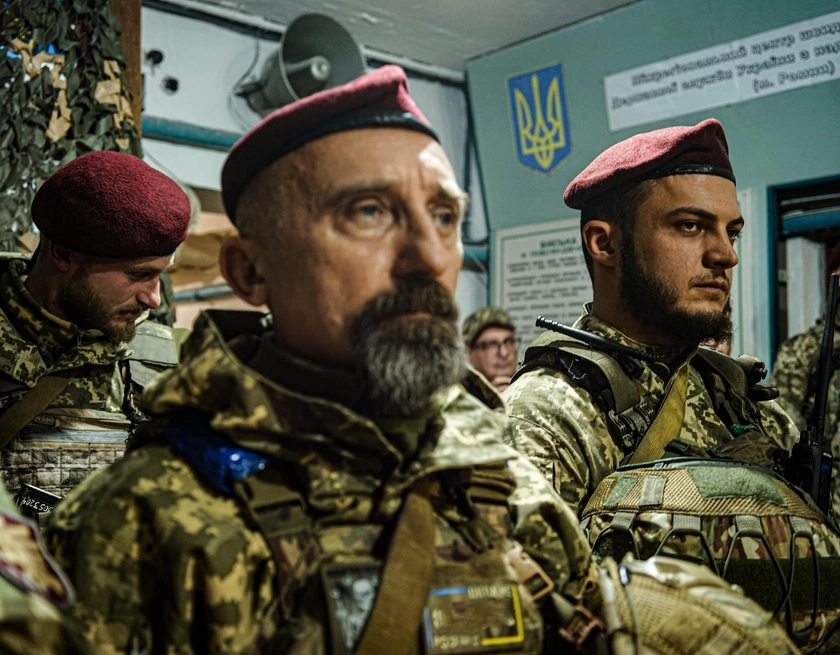The Guardian reported on Tuesday that the International Federation of the Red Cross (IFRC), which has oversight of 191 national Red Cross and Red Crescent societies, is under pressure by Western governments and other donors to take action against the Russian Red Cross (RRC), which is increasingly participating in events that support propaganda activities linked with Moscow’s war in Ukraine.
A leak of Kremlin documents, shared by the Estonian investigative publication Delfi with nine other European media outlets, cast light on the links between Pavel Savchuk, the head of the RRC, and the central headquarters of the All-Russian Popular Front (ONF).
JOIN US ON TELEGRAM
Follow our coverage of the war on the @Kyivpost_official.
The ONF was created by the then-Prime Minister of Russia Vladimir Putin in 2011 and seeks to establish formal political alliances between the government and numerous Russian non-governmental organizations.
In January, Savchuk’s RRC signed a memorandum of understanding to work with the Artek children's camp in occupied Crimea, which has been placed under Western sanctions charged with conducting “patriotic re-education” programs for deported Ukrainian children.
The US State Department has claimed that many of the children sent there were then “prevented from returning to their families.”
Other senior RRC officials have been quoted as making statements in support of the war in Ukraine and saying there can be no peace with “Ukrainian Nazis.”

Le Pen: Trump’s Aid Freeze is ‘Cruel’ – A Turn From Her Former Kyiv Policy?
A few weeks after the invasion of Russian troops, the chairman of the Tver regional branch of the RRC, Nikolai Dobylev, stated that the Ukrainian army had shot fleeing civilians in the back in contrast to Russian troops who were “fighting with honor.”
The head of the RRC in Oryol city, Valery Burkovsky, planted a tree at an event dedicated to the Russian soldiers who had died in the so-called “special military operation” in Ukraine. One of those attending the event said: “Every tree planted today symbolizes a belief in the victory of justice over dark forces with whom Russia has been forced to fight.”
The Guardian published photographs of employees of the RRC taking part in military-style training exercises with young people where RRC employees taught first aid to children as young as ten who had been practicing hand-to-hand combat and knife skills at the so-called “Children's Special Forces camp” in the Eastern Russian province of Khanty-Mansiysk.
At another event, photographs seen by the Guardian showed members of the “Combat Brotherhood” organization providing basic military training to young children and later posing with them holding machine guns along with children and members of the RRC.
Other documents show that in 2024 the Kremlin has allocated 677 million rubles ($7.4 million) to fund RRC activity in occupied Ukraine, of which 115 million rubles ($1.25 million) will be set aside to finance four new branches of the RRC in so-called “new territories,” the four Ukrainian regions that Putin laid claim to in 2022, in place of ICRC sponsored units. This would be in direct violation of international law and the Red Cross charter.
Confronted with the issue, the IFRC says it has initiated an investigation into violations of its charter by Russia but that “At this stage we are collecting information. It takes time. After which a decision will be made on further steps.”
Major donors to the Red Cross include the UK, which says it would await the results of the investigation, and Sweden, whose spokesperson said: “Full clarity on these issues is now needed. We expect the IFRC to take swift action in accordance with its constitution, which includes measures such as suspension or expulsion.”
In a response to media reports concerning its activities the RRC stated that it does not cooperate with military-patriotic or other similar organizations, claiming that “The events held in children’s camps fully comply with the mandate of the Russian Red Cross.”
Last year, the IFRC suspended the Belarusian branch of the Red Cross after its head, Dymytry Shetsov, admitted it had been involved in the deportation of Ukrainian children to Belarus.
You can also highlight the text and press Ctrl + Enter











